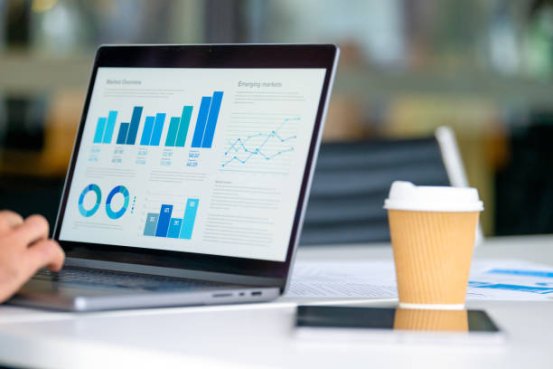Business
Accounting Software: Streamline Your Finances with Smarter Tools
Managing finances efficiently is key for both individuals and businesses. Accounting software in the US can help you track expenses, automate invoicing, and stay prepared for taxes while providing a clear picture of your financial health.
Managing finances efficiently is key for both individuals and businesses. Accounting software in the US can help you track expenses, automate invoicing, and stay prepared for taxes while providing a clear picture of your financial health.

Key Considerations When Choosing Accounting Software
Before selecting a platform, evaluate factors such as pricing, ease of use, scalability, and integration with payment processors or CRM systems. Ensure the software complies with IRS standards and offers robust data protection. Many providers offer free trials, mobile access, and live support, allowing you to get started confidently and minimize implementation challenges.
The Importance of Financial Management Tools
Reliable financial management tools provide structure in handling complex transactions. By accurately tracking income and expenses, accounting software aids in budgeting and gives a real-time overview of finances. Many modern tools include visual analytics, helping users identify trends and make informed decisions that promote long-term financial stability.
Essential Features in Accounting Software
When selecting software, focus on functionalities that meet your needs. Core features include expense tracking, invoice generation, and comprehensive reporting. Support for multi-currency transactions is valuable for international operations. User-friendly dashboards simplify navigation, while automated reminders for bill payments reduce late fees and improve cash flow management. Choosing the right features ensures the software aligns with your operational goals.
Advantages of Cloud-Based Accounting Solutions
Cloud accounting offers unmatched flexibility and access compared to traditional systems. Users can review financial data anywhere—home, office, or on the go—making it ideal for remote teams or frequent travelers. Cloud platforms often feature advanced security protocols and automatic backups, allowing you to focus on your business while keeping financial data safe and current.
Integrating Accounting Software with Other Tools
Modern accounting platforms often integrate with CRM systems, e-commerce sites, and payment processors. Such connections reduce manual data entry and maintain consistency across operations. For example, e-commerce sales can automatically update accounting records, saving time and minimizing errors. This holistic integration streamlines workflows, enhancing responsiveness to market changes and customer demands.
Mobile Access and Its Benefits
Mobile-friendly accounting software is essential for today’s on-the-go users. Mobile apps allow expense tracking, invoicing, and cash flow monitoring from anywhere. Features like receipt scanning simplify record-keeping, while mobile access ensures timely financial decision-making, increasing productivity and convenience.
Customer Support and Resources
Strong customer support enhances the accounting software experience. Providers offering live chat, email, and phone support, alongside online tutorials and knowledge bases, help users resolve issues independently and maximize software capabilities. Comprehensive support ensures efficient use and faster adoption.
Data Security and Compliance
Financial information requires stringent security. Choose software compliant with relevant regulations such as GDPR or HIPAA, depending on your business. Look for encryption, two-factor authentication, and routine security audits. Compliance with tax standards not only protects your business but also strengthens client trust and enhances credibility.
Assessing Cost-Effectiveness
Cost is important but should be weighed alongside features and support. Some low-cost options may lack essential functionalities or require expensive add-ons. Conduct a total cost analysis, considering subscription fees, training, and future upgrades. Software that reduces errors and boosts efficiency provides long-term savings, ensuring value beyond the initial investment.
How do you like this article?




